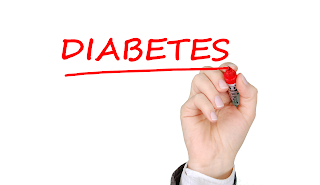Questions about VLCD have been continuous and
coming from many directions for more than 40 years, because Very Low Calorie
Diets really work. They cause safe and substantial weight loss.
Excess weight is a killer and an unnecessary
destroyer of the quality of life for too many people.
It is time for a wider understanding of the
facts about VLCDs and dieting in general. These facts must be accepted before
the medical consequences of excess weight bankrupt the NHS.
In this report we discuss some of the most
frequently asked questions about VLCD in an attempt to stop the perpetuation of
dieting myths.
1. Are there enough Calories in a VLCD?
2. Is there enough protein in a VLCD?
3. Do VLCDs have enough carbohydrates?
4. Are there enough essential fatty acids in a
VLCD?
5. Are there enough nutrients (vitamins,
minerals, trace elements) in VLCDs?
6. Is there published evidence on the safety
and efficacy of VLCDs?
7. Do VLCDs cause too rapid weight loss? Does
the lost weight return rapidly and to a level worse than before the diet?
8. Are there medical benefits from using a
VLCD?
1. ARE THERE ENOUGH CALORIES IN A VLCD?
One of the most important features of the
human body is the ability to store all but a few of our most essential nutrient
needs. Fat is the major storage site for Calories.
In a seriously overweight individual, there
are an enormous number of Calories in fat storage. The Calories stored in body
fat reach astronomical numbers, about 49,000 Calories per stone.
The purpose of a diet is to reduce the number
of stored fat Calories. The stored Calories are there to be used. Use them. The Calories you ate at lunch may
never be used, and are certainly not used immediately.
In a person with large stores of fat Calories,
there is really no lower limit to the number of Calories required in the diet,
except for the Calories potentially supplied by the essential nutrients.
What do
we need to eat?
We choose a variety of plants and animals in
order to provide the 50 or so nutrients that are essential to keep us
healthy. Unfortunately, the composition
of any of these plants and animals are unique to them, so none of them, on
their own, provide for all of our essential requirements. We have to eat a
variety of foods in order to get enough of all the vitamins, minerals, trace
elements, amino acids, essential fatty acids and even some carbohydrates for us
to stay healthy.
The only choice for a single “food” that
theoretically has all the nutrients that humans require is another human.
Carrots make delicious eating, but they are carrots and not people.
Fortunately, the foods we choose to eat are usually not other humans. Most
modern societies frown on cannibalism.
When we eat enough variety of food choices we
usually get the necessary nutrients. Pick enough of the wrong foods however,
and even with a food excess there could still be nutrient deficiencies.
When we diet, it gets harder and harder to get
enough of the essential nutrients as the amount of food is reduced. Eventually
there comes a limit, when it is impossible to get enough of all essential
nutrients, even with the ideal choices of foods. This limit happens to be 1200
Calories per day. Below 1200 Calories a
day there is no combination of conventional foods that can provide enough of
all our essential nutrients. Without enough of these nutrients, the body is
compromised and, depending on which nutrients become lacking, there can be a
wide variety of negative health consequences.
Losing weight is not benign.
An obese person has at least 3 stones of
excess stored fat. This amounts to 147,000 Calories, enough to power most
active women for at least 10 weeks. A dieter simply requires a complete source
of nutrients, not another source of Calories.
Modern Very Low Calorie, nutrient complete
diet formulas, provide all the essential nutrients in the necessary amounts to
keep people healthy. The only reason the formulas have any Calories at all is
because some of the nutrients, the amino acids, the fatty acids and the
essential carbs all have caloric values. Of course, these must be provided,
since they have other roles beside being a potential source of energy.
VLCDs provide dieters one of the healthiest
and most nutritionally complete daily intakes possible.
2. IS THERE ENOUGH PROTEIN IN A VLCD?
The subject of protein relating to storage and
skin, the two most important issues for dieters using VLCDs, is complex. Unlike
most other nutrients, there is no actual storage site for excess protein and
new muscle fibres are not produced after puberty.
Over the years, there have been many demands
for increases in the amount of protein provided in VLCDs. Current versions of
VLCD formulations may already be less than optimal due to the meddling of
various committees, but it would certainly be very unwise to add any more
protein.
Protein excess to requirements gets converted
to sugar. Extra sugar can be stored either as glycogen or converted to fat,
neither being desirable for a dieter. This is especially important for VLCDs
since it can interfere with ketosis, causing the rate of weight loss to slow
and increase hunger, sometimes enough to lead to dieting failure.
The second issue is more visible. When people
get fat, there are more changes in the body than just putting extra fat into
fat cells. A fatter body has more skin. It has more blood. The extra weight
puts strain on bones and muscles and there are many metabolic changes.
Can you imagine what would happen if the only
change when dieting would be to reduce the amount of fat stored in the fat
cells? The most visible effect would be that the extra skin would still be
there. The unpleasant photos in many
tabloid publications are true, but not necessary, because current VLCD
formulations allow the body to resorb the excess skin. The body uses what it
needs. Adding more protein will lead to more people being left with excess
skin. Other consequences may not be quite as visible.
3. DO VLCDs HAVE ENOUGH CARBOHYDRATES?
When the Atkins diet, a diet that seriously
restricted carbs became very popular, it caused a serious financial problem for
the food industry, from bakers to farmers. The backlash against carbohydrate restriction
was almost as strong as the previous demand for higher intakes of
carbohydrates.
Fortunately, the demands for higher
carbohydrates have been muted now that influential people have learned that
dietary ketosis is not the same as the disease condition, ketoacidosis, and
ketosis has many health benefits.
Ketosis is now being recognized as a valuable
treatment for epilepsy (first reported around 500 BC) and accepted by modern
medicine in the 1920’s), is increasingly being recognized as a potential cancer
treatment and also a potential treatment for a number of neurological diseases
from Parkinson’s to Alzheimer’s.
Ketosis is valuable for dieters. The
conditions for ketosis are well recognized to be helpful in blunting hunger so
that prolonged dieting is possible. Once ketosis is interfered with, even
minimally, continued dieting is often very short lived. With ketosis, the
dieters can remain comfortable for many weeks.
Ketosis is also very protective during weight
loss.
All our cells use sugar as a fuel and the
brain has a considerable need for sugar. When sugar is restricted, the brain
has a problem. It needs sugar once the body's glycogen reserves are depleted, so
the body is quickly forced to convert proteins into sugar. Without ketosis
there is a possible reduction in body protein when dieting through this need
for conversion of body protein into sugar to fuel the brain. Over a prolonged
dieting period this could be harmful.
Ketones, however, can replace sugar as the
energy source for the brain. With a VLCD, the time period before ketosis is
only a couple of days and the continued ketosis prevents the body protein from
being lost.
This is a very important reason for continuous
rather than interrupted dieting.
A number of people have been advocating
various types of intermittent fasting. What this does is eliminate the
metabolic benefits of ketosis and cause a dieter to re-start, with all its
problems, very frequently.
Another reason ketones are so valuable is that
ketones are produced from the fatty acids that are mobilized from fat as weight
is lost. Some of hese fatty acids can be valuable as a source of essential
fatty acids, which will be discussed later. Fatty acids, however, are unable to
pass through the blood-brain barrier and directly provide energy for the brain.
Ketones produced from the breakdown of the fatty acids, are small molecules and
water soluble, so they can get into the brain and provide the necessary energy.
A build up of blood fatty acids can also
become problematic as they are thought to induce heart arrhythmias. Converting
excess fatty acids to ketones with VLCDs
is therefore protective.
Ketogenic, nutrient complete VLCDs are one of
the best and safest ways to diet.
4.
ARE THERE ENOUGH ESSENTIAL FATTY ACIDS in a VLCD?
Body fat is analogous to a bank savings
account. The normal currency supplying the daily energy needs of the body is
sugar. Sugar, beyond the amount in the blood at any one time, is stored in a
complex form as glycogen, a large molecule made up of lots of molecules of
sugar. Glycogen is stored in the body attached to an amount of water that can
be as much as 4 times its weight.
As a carbohydrate, every pound of glycogen is
worth 1800 Calories, about a day’s supply of energy.
A diet that uses about 250 Calories a day less
than the amount of Calories being used, will use up the 1800 glycogen Calories
in a week. Using up the pound of glycogen can release its bound 4 pounds of
water as well. A large weight loss with
a small calorie deficit, but no fat loss. Permanent weight loss must include fat loss, but losing 5
pounds of fat needs a deficit of 17,500 Calories.
Ketogenic Very Low Calorie diets can actually
achieve real fat loss in a reasonable period of time and produce significant
fat weight losses. There are many publications attesting to the fact that
stored fat is released into the blood, as fatty acids. Current studies
demonstrate that there is a selective release of the very fatty acids being
considered as possibly being needed as additional ingredients to VLCD.
Since dieters using a VLCD are releasing fat
from their fat storage sites into the blood stream, the last thing they need is
an additional intake of dietary fat.
True weight loss occurs when the body is
forced to draw on its reserve Calories to fuel itself, and also releases these
essential fatty acids. Restrict Calories and the body supplies Calories and the
essential fatty acids deemed beneficial for health. More dietary fat could
increase the blood fatty acid levels which could be dangerous and also slow weight loss.
Do not do it. The addition of extra Linoleic
and Linolenic acids to a VLCD will not only add unnecessary Calories, slowing
the rate of weight loss, but alarmingly there is evidence that too high blood
fatty acids can lead to arrhythmias.
To make matters even worse there is emerging
evidence that Linoleic acid is highly obesogenic and diabetogenic. These are
precisely the wrong substances to add to a weight loss programme that already
delivers proven safe weight loss.
5. ARE THERE ENOUGH NUTRIENTS (VITAMINS,
MINERALS, TRACE ELEMENTS) IN VLCDs?
How much selenium did you eat yesterday?
Selenium is an essential nutrient. You can’t
even find out how much you ate by looking at a food composition table. The
amount in any food varies from almost none to too much depending on the
composition of the soil the plant was grown in or the amount the animal ate
from those plants. Some animals get a
disease known as "Blind Staggers" from eating plants thought to be
too high in selenium.
There are around 50 substances that are
required for human health. To be healthy we must have a number of vitamins,
minerals, trace elements, essential amino acids and fatty acids, and some
source of carbohydrate. How much time do you spend calculating your intake
levels of each of these? My guess is that for most people it is zero. Yet it is
extremely important and there is no vitamin supplement that contains all the
necessary nutrients.
As the amount of food eaten is reduced, the
opportunity to get a wide variety of nutrients goes down. Many approaches to weight loss, from drugs to
behaviour modification, try to suppress appetite so you will eat less.
But eat less of what? All they appear to care about is Calories.
If you don’t get enough essential nutrients,
you will be ill and possibly very ill. The nutrient complete Very Low Calorie Diets
have the correct amount of every nutrient you need.
VLCDs are one of the most nutritious foods you
could eat, whether or not you are dieting.
6. IS THERE PUBLISHED EVIDENCE ON THE SAFETY
AND EFFICACY OF VLCDs?
There is so much published evidence about the
safety and efficacy of VLCDs that publishers reject new data on the basis that
it is so well known that no one cares.
A proper search of the literature will bring
up many hundreds of peer reviewed publications, but these can be made invisible
if the correct criteria is not used in the search.
The search criteria often used is to limit the
publications to those studied that are placebo controlled and double blind.
Since it is not possible to offer study subjects a formula diet without them
knowing what they are eating, there are none that turn up in the search.
A partial reference list containing hundreds
of papers related to VLCDs is available upon request.
7. DO VLCDs CAUSE TOO RAPID WEIGHT LOSS?
DOES THE LOST WEIGHT RETURN RAPIDLY AND TO A LEVEL WORSE THAN BEFORE THE DIET?
Most dieters want to lose weight as fast as
possible. The problem is that none of the traditional weight loss methods will
result in a reasonable rate of weight loss. In defence, traditionalists created
the myths that rapid weight loss leads to rapid weight regain and that rapid
weight loss causes the loss of muscle.
Both statements are totally false.
One of the best studies of weight maintenance
after weight loss was carried out by the Anderson group.
The claim about muscle loss is ironic in that there is less loss of protein
with a ketogenic VLCD than with traditional food diets. Claims about a loss of
“lean body mass” were made because some people did not know enough science to
understand that the first fuel used up on a diet is sugar and glycogen, as
discussed earlier. Glycogen and it’s
attached water is classed in the category of lean body mass since it is not
fat. There was absolutely no justification for calling this loss of glycogen
and water a loss of protein from muscle. It isn’t.
The paradox comes from the fact that when
sugar is depleted, without ketosis, the body has to convert some of its muscle
protein into sugar in order to supply the needs of the brain. This is a loss of
muscle that does not happen with a ketogenic VLCD.
8.
ARE THERE MEDICAL BENEFITS FROM USING A VLCD?
“Being overweight or obese increases your risk
of developing high blood pressure. In fact, your blood pressure rises as your
body weight increases. Losing even 10 pounds can lower your blood pressure—and
losing weight has the biggest effect on those who are overweight and already
have hypertension.”
The relationship between body weight and blood
pressure. - NCBI
A recent assessment of over 200 people with
high blood pressure pre-diet lost more than 5% of their pre-diet weight using a
VLCD under the care of pharmacists. On
average, these people lost nearly 2 stones of weight. The weight losses ranged
from a half stone to a massive 9 stone. At larger start weights a 5% weight
loss equates to a much bigger downward shift in BMI when compared with lower
start weights. For example a 5% loss for a 26 stone patient would be 1.3 stone
weight loss compared with just over 0.5 stone weight loss for a 12 stone
patient achieving 5% weight loss. Patients were excluded on health grounds if
their pre-diet BMI was too low to continue weight loss for a minimum of 4 weeks
dieting.
These pharmacies have made, and are continuing
to make a considerable contribution to the health of their customers.
Possibly an even greater medical benefit from
VLCD is the effect on type 2 diabetes.
The media headlines are that “Tackling obesity
head on can REVERSE type 2 diabetes”
Obesity and type 2 diabetes are in the news
again. This time it is the revelation that type 2 diabetes can be reversed
through weight loss. Although known since the publications of Oxford Professor
Arthur Scott Donkin in 1871, and a mass of publications since the introduction
of modern VLCD, it is important that this effective treatment for this killer
disease is becoming more widely known.
VLCDs could save the NHS the one million pounds an hour that they report
spending in treating type 2 diabetes.
The list of medical problems either caused by
or made worse by overweight and obesity is long.
Losing significant weight with VLCDs, under
the supervision of healthcare professionals, is making an important
contribution to the health of the nation.
























